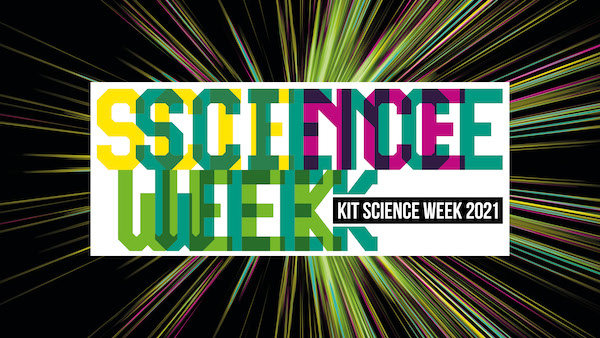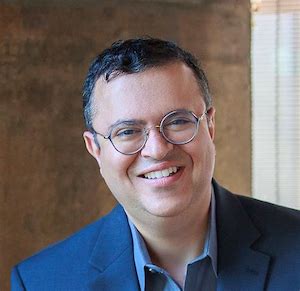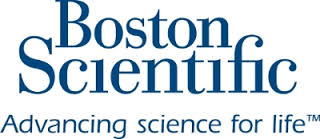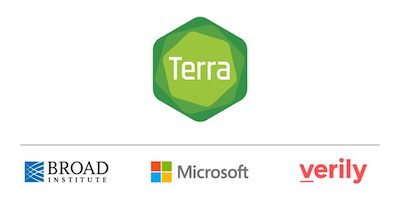 A recent post highlighted how artificial intelligence (AI) is already playing important roles in health care, and concluded that expanded use of AI may be ready for us before we are ready for it. One example of the kind of problem we'll face is: who would we sue if care that an AI recommended or performed went wrong? Because, you know, always follow the money. Last week Stanford's One Hundred Year Study On Artificial Intelligence released its 2016 report, looking at the progress and potential of AI, as well as some recommendations for public policy...
A recent post highlighted how artificial intelligence (AI) is already playing important roles in health care, and concluded that expanded use of AI may be ready for us before we are ready for it. One example of the kind of problem we'll face is: who would we sue if care that an AI recommended or performed went wrong? Because, you know, always follow the money. Last week Stanford's One Hundred Year Study On Artificial Intelligence released its 2016 report, looking at the progress and potential of AI, as well as some recommendations for public policy...
artificial intelligence (AI)
See the following -
Artificial Intelligence Achieves Near-Human Performance in Diagnosing Breast Cancer
 Human and computer analyses together identify cancer with 99.5% accuracy. Pathologists have been largely diagnosing disease the same way for the past 100 years, by manually reviewing images under a microscope. But new work suggests that computers can help doctors improve accuracy and significantly change the way cancer and other diseases are diagnosed. A research team from Beth Israel Deaconess Medical Center (BIDMC) and Harvard Medical School (HMS) recently developed artificial intelligence (AI) methods aimed at training computers to interpret pathology images, with the long-term goal of building AI-powered systems to make pathologic diagnoses more accurate...
Human and computer analyses together identify cancer with 99.5% accuracy. Pathologists have been largely diagnosing disease the same way for the past 100 years, by manually reviewing images under a microscope. But new work suggests that computers can help doctors improve accuracy and significantly change the way cancer and other diseases are diagnosed. A research team from Beth Israel Deaconess Medical Center (BIDMC) and Harvard Medical School (HMS) recently developed artificial intelligence (AI) methods aimed at training computers to interpret pathology images, with the long-term goal of building AI-powered systems to make pathologic diagnoses more accurate...
- Login to post comments
Artificial Intelligence and Human Learning Systems - Key Topic of KIT Science Week 2021
 From October 5 to 10, 2021, the KIT Science Week will celebrate its premiere. Researchers from all over the world, actors from politics and industry, and citizens from Karlsruhe and the region are invited to immerse into the world of artificial intelligence, AI for short. This new type of event of Karlsruhe Institute of Technology (KIT) will offer diverse access to AI and open rooms for discourse. KIT, for its part, will receive impetus for its research agenda.
From October 5 to 10, 2021, the KIT Science Week will celebrate its premiere. Researchers from all over the world, actors from politics and industry, and citizens from Karlsruhe and the region are invited to immerse into the world of artificial intelligence, AI for short. This new type of event of Karlsruhe Institute of Technology (KIT) will offer diverse access to AI and open rooms for discourse. KIT, for its part, will receive impetus for its research agenda.
- Login to post comments
Artificial Intelligence and Machine Learning Bias has Dangerous Implications
 Algorithms are everywhere in our world, and so is bias. From social media news feeds to streaming service recommendations to online shopping, computer algorithms—specifically, machine learning algorithms—have permeated our day-to-day world. As for bias, we need only examine the 2016 American election to understand how deeply—both implicitly and explicitly—it permeates our society as well. What’s often overlooked, however, is the intersection between these two: bias in computer algorithms themselves. Contrary to what many of us might think, technology is not objective...
Algorithms are everywhere in our world, and so is bias. From social media news feeds to streaming service recommendations to online shopping, computer algorithms—specifically, machine learning algorithms—have permeated our day-to-day world. As for bias, we need only examine the 2016 American election to understand how deeply—both implicitly and explicitly—it permeates our society as well. What’s often overlooked, however, is the intersection between these two: bias in computer algorithms themselves. Contrary to what many of us might think, technology is not objective...
- Login to post comments
Artificial Intelligence Cluster Modeling on COVID-19 Data at Scale Offers Opportunity for Improved Patient Outcomes
 Bitscopic Inc., a Silicon Valley based healthcare analytics company, has contracted with the VA Innovation Ecosystem 10X3 for a ground-breaking project to discover best practices in COVID treatment by examining large volumes of medical and other data sets from those who tested positive for COVID-19. The data includes patient health records, socio-economic data, epidemiological data for given geographic areas, and any available genomics or similar indicators for the discovery of significant patterns in patient subpopulations that can lead to improved care protocols and outcomes.
Bitscopic Inc., a Silicon Valley based healthcare analytics company, has contracted with the VA Innovation Ecosystem 10X3 for a ground-breaking project to discover best practices in COVID treatment by examining large volumes of medical and other data sets from those who tested positive for COVID-19. The data includes patient health records, socio-economic data, epidemiological data for given geographic areas, and any available genomics or similar indicators for the discovery of significant patterns in patient subpopulations that can lead to improved care protocols and outcomes.
- Login to post comments
Artificial Intelligence Docs May Need Some Good AI Lawyers
- Login to post comments
Artificial intelligence in medicine: Is the genie out of the bottle?
 It is probably a given that artificial intelligence (AI) will become an integral part of healthcare delivery and of our public health infrastructure. What is not a given is that we will easily reach that point, and maintain progress in a way that maximizes its effectiveness in achieving the goals we have come to expect of it – efficient and improved healthcare and public health systems. In other words, making the health of people better in a cost-effective way. Responsible commentators have already begun to question the value of AI in medicine.
It is probably a given that artificial intelligence (AI) will become an integral part of healthcare delivery and of our public health infrastructure. What is not a given is that we will easily reach that point, and maintain progress in a way that maximizes its effectiveness in achieving the goals we have come to expect of it – efficient and improved healthcare and public health systems. In other words, making the health of people better in a cost-effective way. Responsible commentators have already begun to question the value of AI in medicine.
- Login to post comments
Artificial Intelligence Is Not as Smart as You (or Elon Musk) Think
 In March 2016, DeepMind’s AlphaGo beat Lee Sedol, who at the time was the best human Go player in the world. It represented one of those defining technological moments like IBM’s Deep Blue beating chess champion Garry Kasparov, or even IBM Watson beating the world’s greatest Jeopardy! champions in 2011. Yet these victories, as mind-blowing as they seemed to be, were more about training algorithms and using brute-force computational strength than any real intelligence...
In March 2016, DeepMind’s AlphaGo beat Lee Sedol, who at the time was the best human Go player in the world. It represented one of those defining technological moments like IBM’s Deep Blue beating chess champion Garry Kasparov, or even IBM Watson beating the world’s greatest Jeopardy! champions in 2011. Yet these victories, as mind-blowing as they seemed to be, were more about training algorithms and using brute-force computational strength than any real intelligence...
- Login to post comments
Artificial Intelligence Nonprofit OpenAI Launches With Backing From Elon Musk And Sam Altman
Today, OpenAI, a nonprofit artificial intelligence research company was announced to the world. Its director, Ilya Sutskever, is a research scientist at Google. This comes a day after Facebook open-sourced its AI hardware. Its reason for existing was explained in an introductory post: Our goal is to advance digital intelligence in the way that is most likely to benefit humanity as a whole, unconstrained by a need to generate financial return. Former Stripe CTO Greg Brockman is taking the same position for OpenAI. There are quite a few other interesting names involved, including Y Combinator’s Sam Altman and Tesla/SpaceX’s Elon Musk acting as co-chairs...
- Login to post comments
Australia's Digital Health Strategy Gets the Nod Without Data Interoperability Controls
My Health Record, the Australian government's e-health record system, has been officially given the green light from the Council of Australian Governments Health Council to automatically sign citizens up to the service, allowing them to opt-out if they choose. By 2018, all Australians will have a My Health Record and by 2022, all healthcare providers will be able to contribute to and use health information in My Health Record on behalf of their patients. They will also be able to communicate with other healthcare providers on the clinical status of joint patients via the digital platform...
- Login to post comments
Azure API for FHIR moves to general availability
 Today, Microsoft becomes the first cloud with a fully managed, first-party service to ingest, persist, and manage healthcare data in the native FHIR format. The Azure API for FHIR® is releasing today in generally availability to all Azure customers...With the Azure API for FHIR, a developer, researcher, device maker, or anyone working with health data-is empowered with a turnkey platform to provision a cloud-based FHIR service in just minutes and begin securely managing PHI data in Azure.
Today, Microsoft becomes the first cloud with a fully managed, first-party service to ingest, persist, and manage healthcare data in the native FHIR format. The Azure API for FHIR® is releasing today in generally availability to all Azure customers...With the Azure API for FHIR, a developer, researcher, device maker, or anyone working with health data-is empowered with a turnkey platform to provision a cloud-based FHIR service in just minutes and begin securely managing PHI data in Azure.
- Login to post comments
Big Tech Should Stay Out of Healthcare
 ...The use of digital technology in health care has enormous promise, to be sure. But, as the Wall Street Journal's coverage of Google's Project Nightingale revealed, there is also a potential dark side to these projects. Ascension, it noted, "also hopes to mine data to identify additional tests that could be necessary or other ways in which the system could generate more revenue from patients, documents show." That detail raises a key question that's largely overlooked in our health care debates: should the drive to maximize corporate revenues determine how health information technology develops and becomes integrated into medical practice, or should that be determined by medical science and the public?...An alternative path exists. In the 1970s, the Veterans Affairs Administration (VA) developed VistA, an open-source code system that was the country's first EHR system... Read More »
...The use of digital technology in health care has enormous promise, to be sure. But, as the Wall Street Journal's coverage of Google's Project Nightingale revealed, there is also a potential dark side to these projects. Ascension, it noted, "also hopes to mine data to identify additional tests that could be necessary or other ways in which the system could generate more revenue from patients, documents show." That detail raises a key question that's largely overlooked in our health care debates: should the drive to maximize corporate revenues determine how health information technology develops and becomes integrated into medical practice, or should that be determined by medical science and the public?...An alternative path exists. In the 1970s, the Veterans Affairs Administration (VA) developed VistA, an open-source code system that was the country's first EHR system... Read More »
- Login to post comments
Black Duck Announces Open Source “Rookies of the Year”
 Black Duck...today announced the eighth annual Open Source Rookies of the Year, recognizing the top new open source projects initiated in 2015. The selected projects show how diverse and ambitious open source software development has become. From communications to healthcare and beyond, they offer innovative solutions to a range of consumer- and enterprise-grade problems. The 2015 Rookies class reflects three industry trends shaping the future of open source software...
Black Duck...today announced the eighth annual Open Source Rookies of the Year, recognizing the top new open source projects initiated in 2015. The selected projects show how diverse and ambitious open source software development has become. From communications to healthcare and beyond, they offer innovative solutions to a range of consumer- and enterprise-grade problems. The 2015 Rookies class reflects three industry trends shaping the future of open source software...
- Login to post comments
Boston Scientific’s Connected Patient Challenge: Big Data Takes Center Stage
 Big data, artificial intelligence and patient-engagement technologies were among the systems featured at yesterday’s Connected Patient Challenge hosted by Boston Scientific at Google’s Cambridge, Mass. facility. The Shark Tank–style event featured 6 companies competing for a chance to work with Boston Scientific to develop their proposed products or systems...
Big data, artificial intelligence and patient-engagement technologies were among the systems featured at yesterday’s Connected Patient Challenge hosted by Boston Scientific at Google’s Cambridge, Mass. facility. The Shark Tank–style event featured 6 companies competing for a chance to work with Boston Scientific to develop their proposed products or systems...
- Login to post comments
Broad Institute and Verily partner with Microsoft to accelerate the next generation of the open source Terra platform for health and life science research
 On Monday, Broad Institute of MIT and Harvard, Verily, an Alphabet company, and Microsoft Corp. announced a strategic partnership to accelerate new innovations in biomedicine through the Terra platform. Terra, originally developed by Verily and the Broad Institute, is a secure, scalable, open-source platform for biomedical researchers to access data, run analysis tools and collaborate. Terra is actively used by thousands of researchers every month to analyze data from millions of participants in important scientific research projects.
On Monday, Broad Institute of MIT and Harvard, Verily, an Alphabet company, and Microsoft Corp. announced a strategic partnership to accelerate new innovations in biomedicine through the Terra platform. Terra, originally developed by Verily and the Broad Institute, is a secure, scalable, open-source platform for biomedical researchers to access data, run analysis tools and collaborate. Terra is actively used by thousands of researchers every month to analyze data from millions of participants in important scientific research projects.
- Login to post comments
Broad Institute to Release Genome Analysis Toolkit 4 (GATK4) as Open Source Resource to Accelerate Research
 The Broad Institute of MIT and Harvard will release version 4 of the industry-leading Genome Analysis Toolkit under an open source software license. The software package, designated GATK4, contains new tools and rebuilt architecture. It is available currently as an alpha preview on the Broad Institute's GATK website, with a beta release expected in mid-June. Broad engineers announced the upgrade, as well as the decision to release the tool as an open source product, at Bio-IT World today...
The Broad Institute of MIT and Harvard will release version 4 of the industry-leading Genome Analysis Toolkit under an open source software license. The software package, designated GATK4, contains new tools and rebuilt architecture. It is available currently as an alpha preview on the Broad Institute's GATK website, with a beta release expected in mid-June. Broad engineers announced the upgrade, as well as the decision to release the tool as an open source product, at Bio-IT World today...
- Login to post comments